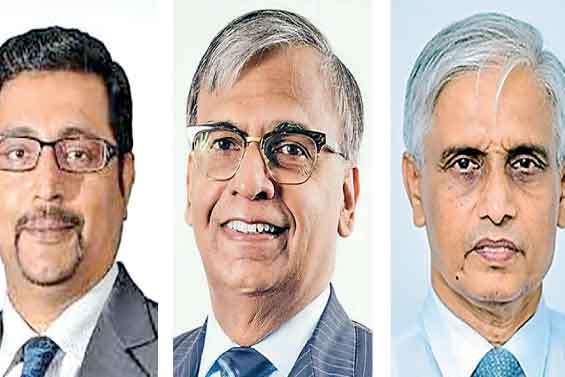Reply To:
Name - Reply Comment

 Say probably the right policy, but rolled out at the wrong time
Say probably the right policy, but rolled out at the wrong time
As the government is leaving no stone unturned to increase tax revenue, experts in the field asserted that while doing away with Value Added Tax (VAT) exemptions is necessary, the authorities couldn’t have picked a worse time to implement the policy.
Sri Lanka is already well-known for implementing policies in a rush, which almost all the time has resulted in detrimental outcomes for businesses and consumers alike. In this backdrop tax consultants are raising concerns on the rush to remove VAT exemptions and hike the VAT rate by 3 percent.
“We are in 100 percent agreement in the implementation of the VAT exemption, but taking into consideration the country's situation, this is the wrong time for that. It is also the wrong way to fix this,” said Suresh Perera KPMG, Principal Tax & Regulatory.
Addressing a webinar organised by CMA that explored the impact of the VAT on industry, commerce, and overall society, Perera pointed out that when implementing tax policies, it is imperative to do with a plan that must be rolled out gradually, not overnight.
According to him, the market will witness a price surge and traders would conveniently attribute it to the
increase in VAT.
“Businesses and traders will use this as an opportunity to make super profits. No one is going to sit and calculate (new prices) properly. So there is a good opportunity for the traders to get a good margin,” he cautioned.
Meanwhile, Gajma & Co. Senior Partner N. R. Gajendran noted that with the new modified VAT system, the authorities should gear up to face the consequences that follow as there will be large-scale evasion.
“There are people who are speaking to professionals who have stated that they have to pay these taxes but don’t have money to pay. The question is with this move, will the government reach the revenue they are expecting?” stated Gajendran.
Highlighting some of the issues in removing VAT exemptions, Asset Advisory Partners MD, Athula Ranaweera stated that several areas need to be well defined to ensure the policy is rolled out in a manner that doesn’t favour a segment, and lets down another.
He pointed out that to survive and compete in the market, there is a high possibility that VAT-registered traders will focus more on purchasing from VAT-registered suppliers over those who are not, to get input credit.
The government has announced the increase of VAT from 15 percent to 18 percent with effect from 1 January 2024. Although the increase is gazetted, its incorporation into the Act via the amendment Bill, released on December 14, is pending.
Similarly, the VAT liable threshold was decreased from Rs. 80 million to Rs. 60 million, but again is pending incorporation into the Act.